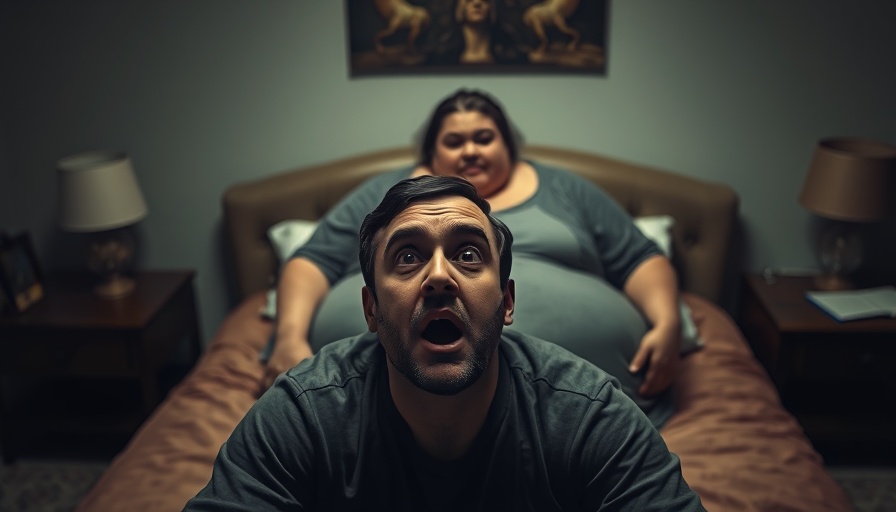
Understanding the Health Risks of Extreme Obesity
Weight-related health issues can significantly impact one's quality of life, as highlighted in the recent episode of My 600 lb Life. In this episode, a woman’s condition exemplifies the heavy toll that morbid obesity can take on various organs like the heart, kidneys, and liver. These health complications aren't just figures; they represent life-altering emotional and physical struggles. When someone weighs as much as 642 lbs, every day becomes filled with challenges, from mobility issues to serious diabetic conditions, as indicated by the patient's alarming blood glucose level of 423.
In 'She Eats 20 Big Mac Meals A DAY! Doctor Reacts to My 600 Lb Life!', the discussion dives into the struggles of extreme obesity, exploring key insights that sparked deeper analysis on our end.
How Eating Habits Contribute to Obesity
In the episode, the patient reportedly consumed around 20,000 to 30,000 calories a day—an amount staggering compared to the average woman’s caloric intake of about 2,000. The described diet is not merely a health issue; it's a cry for help overshadowed by emotional struggles and unhealthy habits. Emotional eating often leads to people using food as a way to cope with pain, resulting in a cycle of overeating that becomes difficult to break, particularly if there isn’t a supportive environment. The challenge lies not only in personal resolve but also in the social dynamics of family and relationships, as seen with the patient’s husband who inadvertently enabled unhealthy habits by bringing her food.
The Role of Medical Intervention in Weight Loss
These individuals often find themselves at a crossroads, wherein medical professionals step in to help. This particular patient faced the daunting reality of weight loss surgery; however, stability and health needed to be established first. Medical professionals, like Dr. Now from the show, emphasized the importance of a reduced-calorie diet, moving her from a massive caloric intake to just 1,000 calories a day. The transition requires immense dedication, but it’s a pivotal moment that can determine one's path toward recovery. Surgery can offer a lifeline, but the real hard work starts before entering the operating room.
Real-Life Implications of Health Interventions
The contrast of the patient’s initial state against her progress illustrates a wider truth: substantial lifestyle changes are possible. Over several months, she lost 128 lbs through very controlled environments and interventions. However, her journey also brings attention to the risks of emotional eating patterns. It's vital that friends and family become part of the support mechanism to ensure that weight loss efforts are not sabotaged post-recovery.
Looking Ahead: Empowering Change Beyond Surgery
While surgical interventions like gastric bypass and gastric sleeve surgery can be transformative for those battling obesity, they are not a one-size-fits-all solution. Gastric sleeves may present fewer risks than bypass operations, making them a viable option for many. However, the effectiveness of these procedures heavily relies on ongoing commitment to lifestyle changes and a supportive environment. If the underlying habits remain unchanged, patients might find themselves reverting back to previous patterns of unhealthy eating.
The Importance of Emotional Support and Community
Ultimately, as seen in this episode, true recovery extends beyond medical interventions. Emotional support, encouragement, and education about healthy habits are critical. Community resources, therapy for emotional eating, or even supportive friends can make a substantial difference in sustaining weight loss and achieving a healthier lifestyle. It’s crucial to advocate for oneself and seek both emotional and medical support.
Such stories remind us that change is not just physical; it encompasses emotional and mental health as well. Realizing this can alter the perception of obesity in our communities, creating a compassionate dialogue around this sensitive issue.
 Add Row
Add Row  Add
Add 




Write A Comment